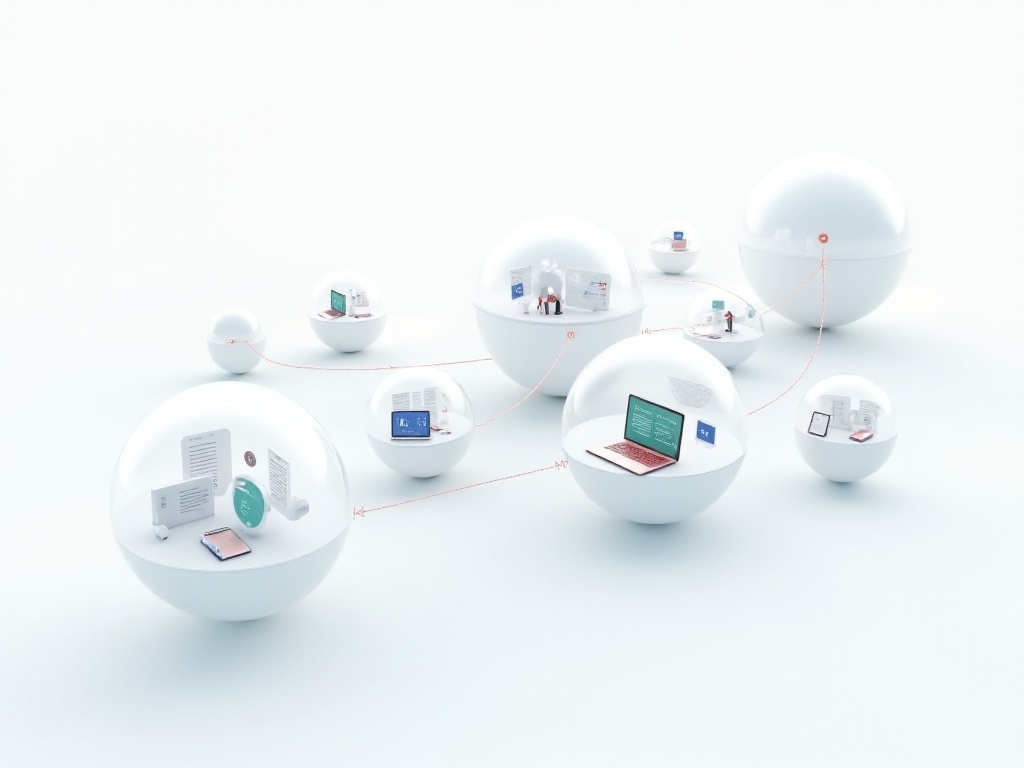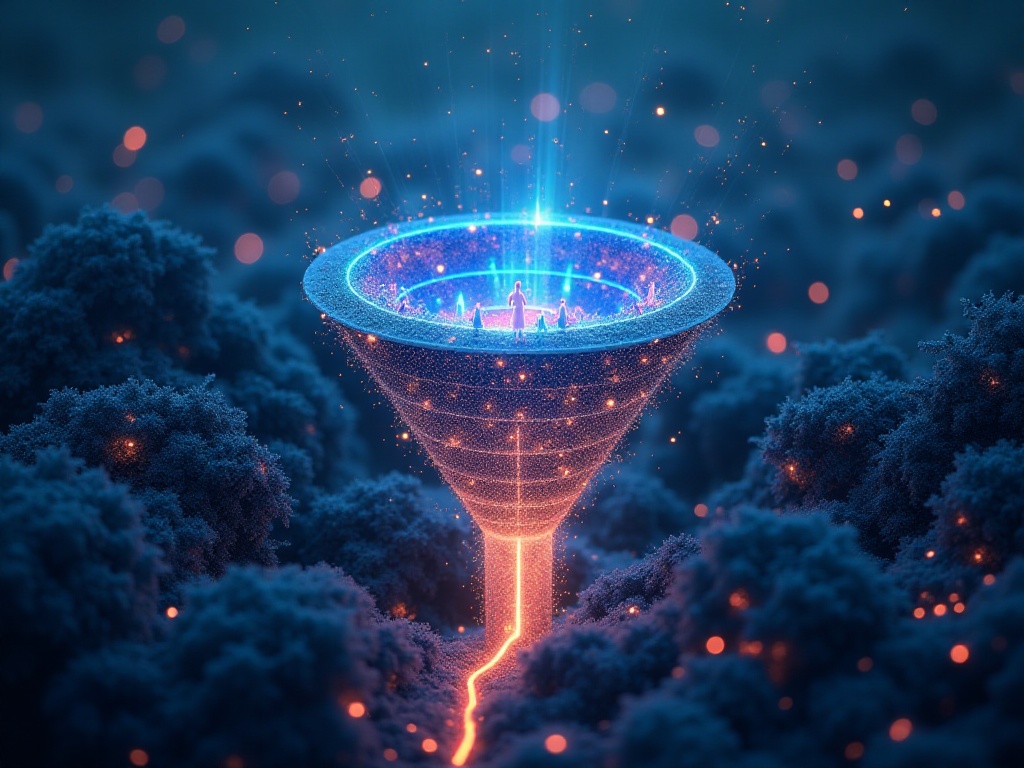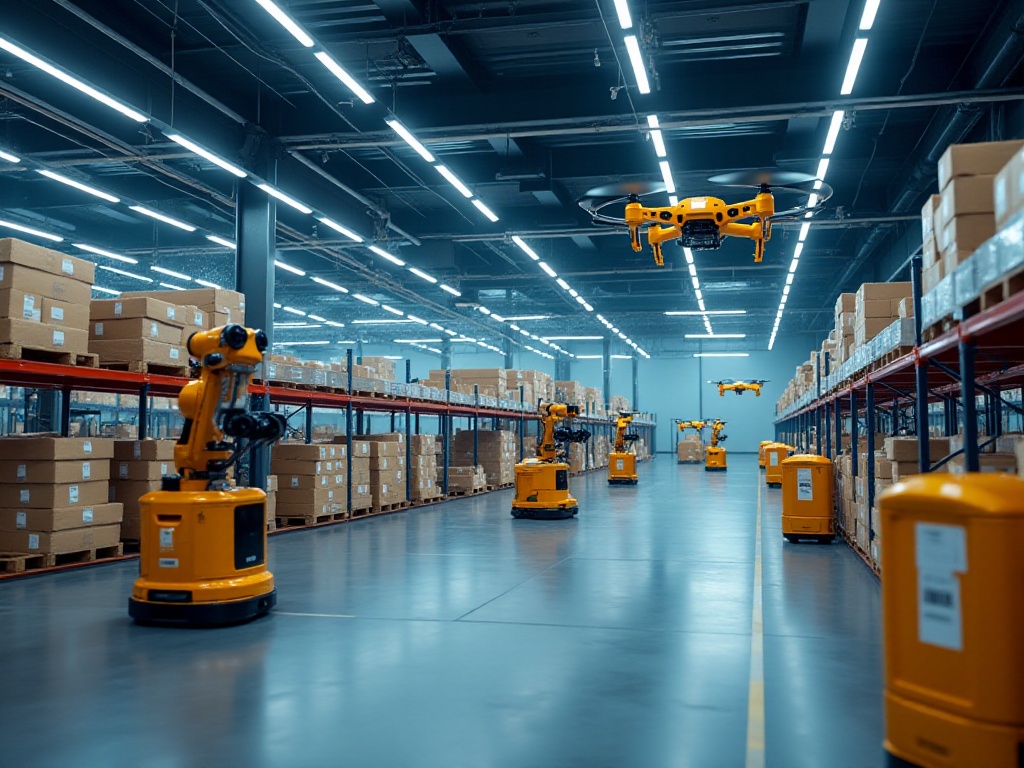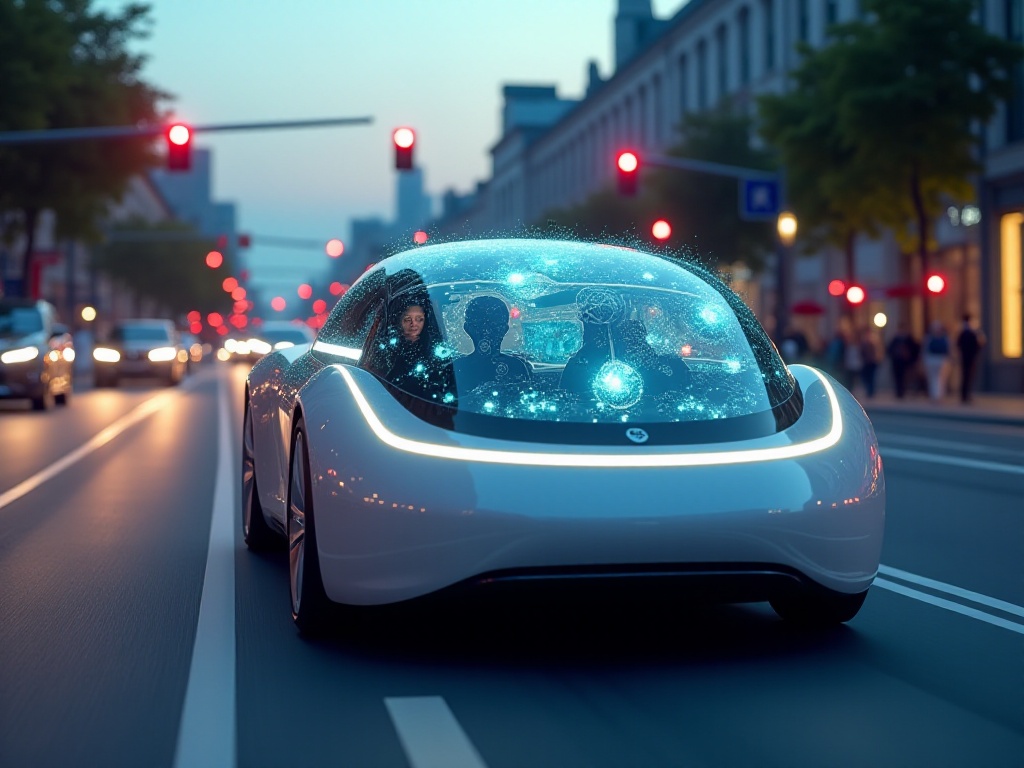Opening Chat
Recently, I noticed that friends around me are all talking about AI marketing - some in e-commerce, content creation, and branding. As a newcomer to the industry, I really wanted to understand what AI marketing is all about. To be honest, I was a complete novice when I first started, but after research and practice during this period, it truly opened my eyes and I discovered that AI marketing solutions are far richer than I had imagined.
I remember when I first entered the industry, seeing colleagues discussing various sophisticated AI marketing terms like machine learning algorithms and deep learning models, which left me dazed and confused. But as I gradually learned more, I found these weren't as unreachable as I had imagined. Today I'd like to share my observations and thoughts as a marketing novice.
Data is King
Speaking of data-driven approaches, I must share my personal experience. When I first started in marketing, I was completely working based on intuition, thinking certain campaigns would go viral or certain products would be popular. It wasn't until I participated in a project using AI predictive analytics tools that I truly understood what "data is king" means.
I have a friend,小A, who works in beauty products. Previously, she ran campaigns purely based on experience and intuition. Sometimes she thought a product would be a hit and stocked up heavily, only for it to not sell well; other times she thought a product would be mediocre, only for it to sell out immediately. Things completely changed after using AI predictive analytics tools.
The system could not only predict the next quarter's popular categories but also accurately predict user purchasing behavior. Most amazingly, before last Chinese New Year, the system predicted that 80% of users would purchase New Year gift sets two weeks before the holiday. Although 小A was worried this prediction might be too optimistic, she trusted the data and stocked up in advance. The results didn't disappoint - sales doubled compared to the previous year, and there were almost no stock-outs.
Moreover, today's AI marketing tools have evolved to enable real-time performance analysis. What does this mean? It means we no longer have to wait until a campaign ends to know its effectiveness like before. The system monitors various data metrics in real-time, such as user click-through rates, time spent, conversion rates, and so on. If an issue is detected at any point, we can adjust our strategy immediately.
I experienced one such real-time adjustment case. During a beauty product promotion, the system detected high click-through rates but low conversion rates. By analyzing user behavior data, we found many users were leaving after seeing the price. We immediately adjusted the price display method, putting the "discounted price" in a more prominent position while emphasizing value for money, and the conversion rate immediately improved by 30%.

Personalization for Everyone
Speaking of personalized marketing, I must mention a case that particularly amazed me. A well-known e-commerce platform truly achieved "personalization for everyone" after using an AI recommendation system. This system is like a personal shopping advisor for each user, pushing different content based on users' browsing history, purchasing habits, and even time periods.
For example, if the system notices a user often browses sports equipment at 11 PM, it will push relevant in-depth content during this time period. Not just simple product recommendations, but professional sports knowledge and equipment reviews based on the user's interests. This precise targeting increased conversion rates by 40%.
Even more amazing is that the system can identify users' consumption habits and price sensitivity. For example, if it discovers a user often makes purchases during maximum discount periods, the system will send them advance notices before big promotions; for users who prefer high-end products, the system will push more new product information and limited edition notifications.
I also saw a case from a cosmetics brand where their AI system would push personalized skincare solutions based on users' skin type, age, lifestyle, and other information. Different users see completely different homepages when opening the APP - some see product recommendations for acne, others see anti-aging care plans, and others see whitening product usage guides. This made me realize that future marketing will no longer be simple broadcast-style promotion, but truly "personalized marketing."

Comprehensive Approach
While researching various AI marketing tools, I discovered that marketing automation has developed to an impressive degree. From initial content creation to later optimization of delivery, from early user analysis to final conversion tracking, AI can be involved in every aspect of marketing.
An AI content creation platform I recently encountered really amazed me. It can not only generate copy but also automatically optimize SEO. More impressively, it automatically adjusts content format according to different platform characteristics. For example, the same article becomes short posts on Weibo, long-form articles with images on WeChat Official Accounts, and product recommendation notes on Xiaohongshu. This reminds me of the days when we had to manually adjust copy - it's like comparing heaven and earth.
Not just in content creation, AI also plays an increasingly important role in delivery optimization. I know a friend who does short video marketing, and they use an AI system to analyze user viewing behavior. The system can identify which shots most easily attract user attention, which content most easily triggers interaction, and then automatically optimize delivery strategy. For instance, if it discovers certain types of videos perform best during specific time periods, the system will automatically adjust delivery times.
In terms of user analysis, current AI tools have become increasingly powerful. They can not only analyze users' basic attributes but also deeply mine their behavioral and psychological characteristics. I saw an interesting case where an AI system of a clothing brand discovered a special group through analyzing shopping behavior: although they often browse luxury goods, their actual purchasing power might be insufficient, and they often end up choosing affordable but well-designed products. The brand specifically developed a "light luxury series" for these users, which was very successful.
Conversion tracking has also become more precise and comprehensive. Current AI systems can track the entire path from users' first contact with ads to final purchase, and even analyze users' hesitation points and decision factors at each stage. This data not only helps optimize marketing strategies but also guides product development and service improvements.

Solutions for All Sizes
Speaking of AI marketing tools, many might think these are only affordable for large companies? Actually, that's not the case at all. There are now many solutions in the market for businesses of different scales, ranging from hundreds to hundreds of thousands of yuan - the key is finding what suits you.
I know a small handicraft shop owner, 小B, whose shop only makes tens of thousands per month. But she uses a simple AI marketing tool mainly for user profile analysis and automated marketing. The tool only costs a few hundred yuan per month but brings very noticeable results. For example, the system automatically analyzes characteristics of past customers, then advertises to similar target groups, and automatically sends coupons or new product information at appropriate times. After using this tool, her customer repurchase rate increased significantly while customer acquisition costs actually decreased.
For medium-sized enterprises, there are even more choices. I previously participated in a clothing brand project where they chose a mid-range AI marketing solution that mainly included smart customer service, personalized recommendations, and marketing automation features. While this system isn't as complex as those used by top luxury brands, it could meet most marketing needs. Most importantly, the system is modular, allowing functions to be added or reduced as needed, making it very flexible.
Large enterprises can choose more complex customized systems. I know of a famous brand that built their own AI marketing system, achieving intelligence from data collection to marketing strategy formulation. Their system can even predict fashion trends and adjust product strategies based on social media hot topics and user discussions. Although the investment is relatively large, the benefits are quite considerable.

Promising Future
After this period of observation and learning, I increasingly feel that AI marketing still has huge development potential. What we see now might just be the tip of the iceberg, with more exciting applications to come.
I think future marketing might be like this: every brand will have their own AI marketing assistant that not only understands brand tone but also user psychology. These AI assistants can monitor market dynamics in real-time, predict consumption trends, and even proactively discover business opportunities. For example, when the system detects a topic heating up on social media, it can immediately generate relevant marketing content and choose the best delivery timing and channels.
In terms of personalized marketing, future AI systems might achieve even more extreme levels. They won't just push content based on users' explicit characteristics but also adjust marketing strategies by analyzing users' emotional states and life rhythms. Imagine when the system detects a user is under pressure recently, it would push some relaxing content or stress-relief product recommendations.
However, ultimately, no matter how powerful technology becomes, it can't completely replace human value. AI is more like giving us "ears that hear far" and "eyes that see far," helping us better understand the market and users. But how to use these tools and how to develop marketing strategies that truly touch people's hearts still requires the wisdom and creativity of us marketers.
Take content creation for example - although AI can generate various forms of copy, content that truly touches people's hearts often needs human emotion and insight. I think the ideal future state is human-machine collaboration, using AI to handle data analysis and automated operations while putting more energy into creative thinking and strategy formulation.
As a newcomer who just entered the industry, I'm particularly looking forward to seeing more possibilities in AI marketing. Perhaps in the near future, we'll see more amazing marketing cases. Maybe what we think is impressive now will just be entry-level applications by then.
By the way, what aspects of AI marketing do you find most impressive? Welcome to share your thoughts and experiences in the comments section. I believe everyone will have different insights and experiences - let's discuss, learn, and grow together.








